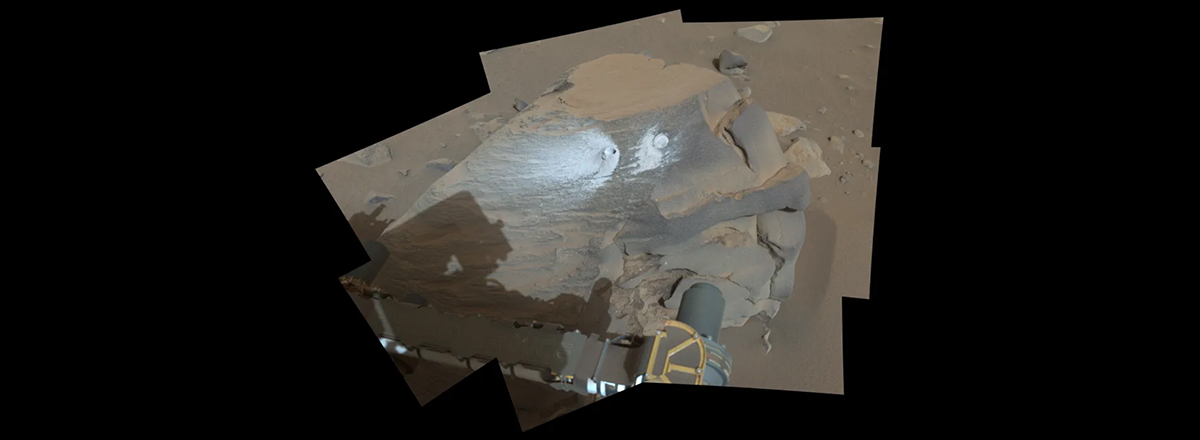Unprecedented Mars Rock Sample Could Hold Clues to Ancient Life
This find, known as sample 24, was retrieved from a unique outcrop that stood out to scientists due to its unusual composition and structure, suggesting a long history submerged in water, possibly part of an ancient Martian lake.

NASA’s Perseverance rover has made a discovery in the Jezero Crater on Mars, unearthing a rock sample that could potentially bear signs of ancient microbial life. This find, known as sample 24, was retrieved from a unique outcrop that stood out to scientists due to its unusual composition and structure, suggesting a long history submerged in water, possibly part of an ancient Martian lake.
The rock, named Bunsen Peak, measures approximately 5.6 feet by 3.3 feet and features a nearly vertical face that provides a natural cross-section of layered rock. This unique aspect caught the attention of the Perseverance team because it appeared less dusty and more accessible for detailed study. The rover's suite of instruments confirmed that the rock is composed mainly of carbonate minerals formed in water environments, which are known on Earth for their ability to preserve organic materials and biosignatures.
The discovery of such a rock is particularly significant because it aligns with the primary goals of the Perseverance mission—to explore the Jezero Crater, once believed to be flooded with water, and to collect samples that could provide evidence of past life on Mars. Scientists are excited about the sample’s potential to reveal more about the planet's habitable conditions and the climate at the time of the rock's formation.

